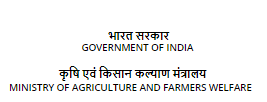Aeronomas hydrophila Attenuated vaccine strain
Background:
Aeromonas hydrophila, a free-living Gram-negative bacterium, causes a wide variety of symptoms either as a primary, secondary or opportunistic pathogen in a variety of aquatic and terrestrial animals, including human beings. A. hydrophila infection is the scourge of fresh and brackish water fish farming worldwide and is considered as a significant economic problem in Indian aquaculture over the past decade. The bacterium causes various diseases in fish named as haemorrhagic septicaemia, dropsy, epizootic ulcerative syndrome, haemorrhagic enteritis, and red body disease. Over the years, antibiotics and chemotherapeutants are used for controlling A. hydrophila, but it has been observed that bacterial pathogens become resistant to these chemicals when used over an extended period of time. So vaccination is the most promising concept to control diseases. Different kinds of vaccines have been investigated/developed against A. hydrophila including whole cell, outer membrane proteins, extra-cellular proteins, lipopolysaccharides (LPS), biofilms and live aroA mutant attenuated vaccines. Although these vaccines have shown varying degrees of increased immunity and protection in fish, yet no commercial vaccine is available for A. hydrophila
Technology Details:
Aeromonas hydrophila, a free-living Gram-negative bacterium, causes a wide variety of symptoms either as a primary, secondary or opportunistic pathogen in a variety of aquatic and terrestrial animals, including human beings. A. hydrophila infection is the scourge of fresh and brackish water fish farming worldwide and is considered as a significant economic problem in Indian aquaculture over the past decade. The bacterium causes various diseases in fish named as haemorrhagic septicaemia, dropsy, epizootic ulcerative syndrome, haemorrhagic enteritis, and red body disease. Over the years, antibiotics and chemotherapeutants are used for controlling A. hydrophila, but it has been observed that bacterial pathogens become resistant to these chemicals when used over an extended period of time. So vaccination is the most promising concept to control diseases. Different kinds of vaccines have been investigated/developed against A. hydrophila including whole cell, outer membrane proteins, extra-cellular proteins, lipopolysaccharides (LPS), biofilms and live aroA mutant attenuated vaccines. Although these vaccines have shown varying degrees of increased immunity and protection in fish, yet no commercial vaccine is available for A. hydrophila


